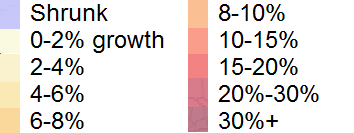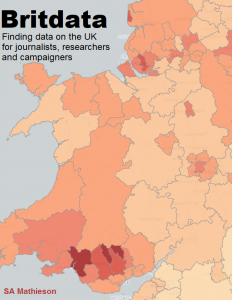There is a lot to be said for a British general election. It is brutally fast in delivering the people’s verdict. It uses technology that everyone can understand and is impossible to hack remotely. And in returning to Rick Wakeman’s prog-rock classic, the BBC has given it back its theme music.
But elections alone are a pretty thin form of democracy. Those who shifted from Labour to vote Conservative did so because of Jeremy Corbyn, because of the party’s far-left manifesto, because of Brexit, because they like Boris Johnson or a mix of these and others. The reasons will come out in surveys and interviews, but aren’t a formal part of the results and the government can ignore them. Continue reading “How to build democracy with technology away from elections”


 If I have a data journalism specialist subject, it is Britain. Writing about its public sector means finding out how to extract information on it through Freedom of Information, parliamentary written answers and open data on spending; knowing how to use official published data on Britain’s localities; and understanding the often-messy structure of local public services including councils, police, fire and NHS organisations.
If I have a data journalism specialist subject, it is Britain. Writing about its public sector means finding out how to extract information on it through Freedom of Information, parliamentary written answers and open data on spending; knowing how to use official published data on Britain’s localities; and understanding the often-messy structure of local public services including councils, police, fire and NHS organisations.